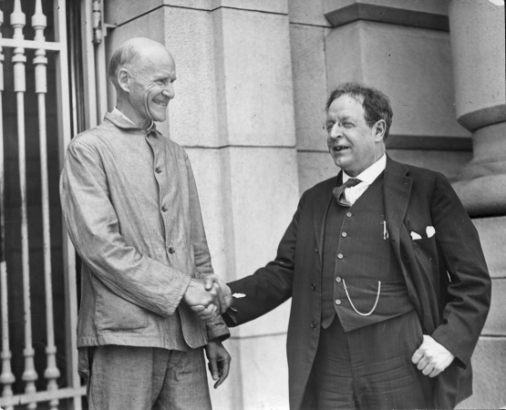Libertarianism is supposed to be having a moment in America, but Edward Luce of the Financial Times argues that it’s Socialism that really is. I’ll certainly disagree with the columnist’s depiction of Martin O’Malley as a “left winger” (he’s a pragmatist in the Clinton mold), but it is worth thinking back on the collapse of the Soviet Union. At that moment, it seemed capitalism had ultimately triumphed. What if capitalism leads to robotics so profound that technological unemployment brings about the end of capitalism? Or at least a radical redefining of it? Not impossible.
Luce’s opening:
Leftwing politicians are in electoral retreat across most of the western world. The one exception is the United States. At 15 per cent in the Democratic polls, Bernie Sanders, the senator from Vermont, is riding higher than any US socialist since Eugene Debs ran for the White House a century ago.
The fact that Mr Sanders has very little chance of unseating Hillary Clinton is beside the point. His popularity is dragging her leftward. If he flames out, other left-wingers, such as Martin O’Malley, the former governor of Maryland who entered the race at the weekend, are ready to pick up the baton. Elizabeth Warren, the populist Massachusetts senator, will continue to prod Mrs Clinton from outside the field. The more Mrs Clinton adopts their language, the harder it will be for her to reclaim the centre ground next year. Yet she is only following the crowd. A surprisingly large chunk of Democrats are happy to break the US taboo against socialism.
To most students of US politics, the phrase American socialism is an oxymoron — like clean coal or the Bolivian navy. A century ago, Werner Sombart, a German scholar, asked “Why is there no socialism in America?” It was a question that confounded Marxists. As the most advanced capitalistic society, the US was most ripe for a proletarian revolution, according to their teleology.
Yet the US refused to live up to its role.•
Tags: Edward Luce

